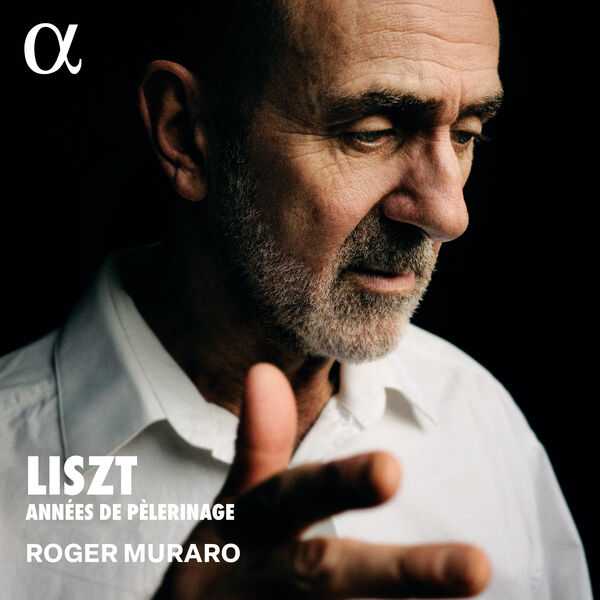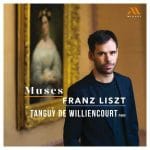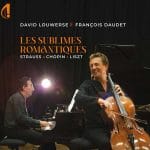

Composer: Ferencz Liszt
Performer: Roger Muraro
Number of Discs: 3
Format: FLAC (tracks)
Label: Alpha
Catalogue: ALPHA1075
Release: 2024
Size: 2.5 GB
Recovery: +3%
Scan: yes
CD 01
Années de pèlerinage I, S. 160
01. I. Chapelle de Guillaume Tell
02. II. Au lac de Wallenstadt
03. III. Pastorale
04. IV. Au bord d’une source
05. V. Orage
06. VI. Vallée d’Obermann
07. VII. Églogue
08. VIII. Le mal du pays
09. IX. Nocturne
CD 02
Années de pèlerinage II, S. 161
01. I. Sposalizio
02. II. Il Penseroso
03. III. Canzonetta del Salvator Rosa
04. IV. Sonetto 47 del Petrarca
05. V. Sonetto 104 del Petrarca
06. VI. Sonetto 123 del Petrarca
07. VII. Après une lecture de Dante. Fantasia quasi sonata
Années de pèlerinage II, Supplément, S. 162
08. I. Gondoliera. Canzone del Cavaliere Peruchini
09. II. Canzone
10. III. Presto e canzone napolitana
CD 03
Années de pèlerinage III, S. 163
01. I. Angelus ! Prière aux anges gardiens
02. II. Aux cyprès de la Villa d’Este. Thrénodie
03. III. Aux cyprès de la Villa d’Este. Thrénodie
04. IV. Les Jeux d’eau à la Villa d’Este
05. V. Sunt lacrymæ rerum, en mode hongrois
06. VI. Marche funèbre
07. VII. Sursum corda
The great French pianist Roger Muraro joins Alpha Classics for several recording projects. Born in Lyon to Venetian parents, he was a pupil of Yvonne Loriod and is regarded as the leading specialist in the music of Olivier Messiaen, to which he has devoted much of his career. But this noted pedagogue, a former professor at the Conservatoire National Superieur de Paris, is also renowned for his profound and sensitive approach to the music of Ravel, Chopin, Schumann – and Liszt, of whom he is particularly fond. He now presents a monumental masterwork by Liszt which is in his view a work of ‘universal intimacy’: ‘I admire the freedom with which the evocations of the soul, of nature, of the colours of the masters of Italian painting unfold in succession. Everything Liszt saw during his pilgrimage to Switzerland and Italy contributed to a process of reflection, a journey, a quest to bring him closer to his ideal where silence became the ultimate authority.’



